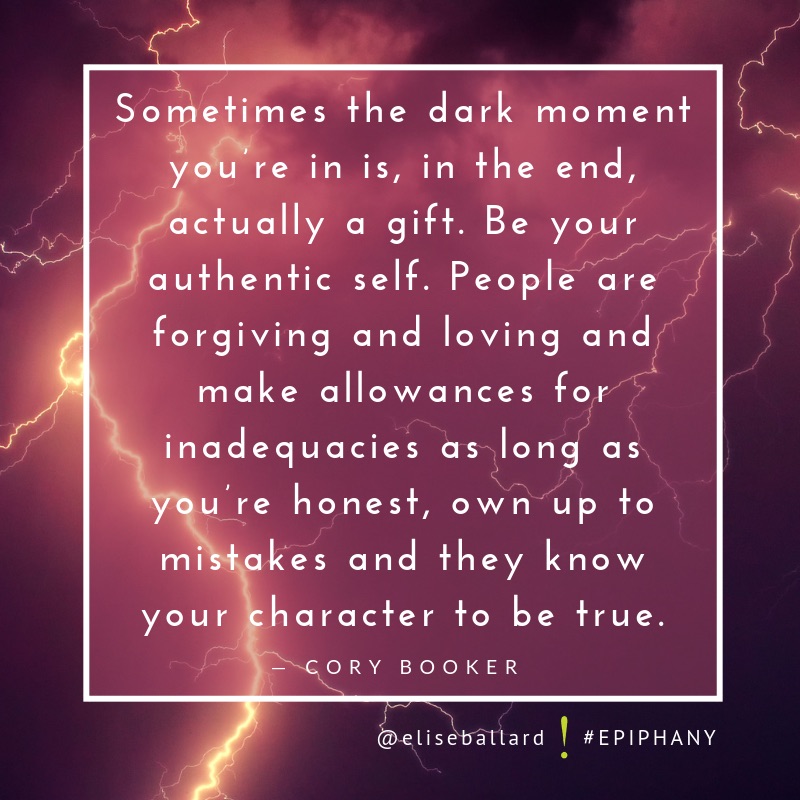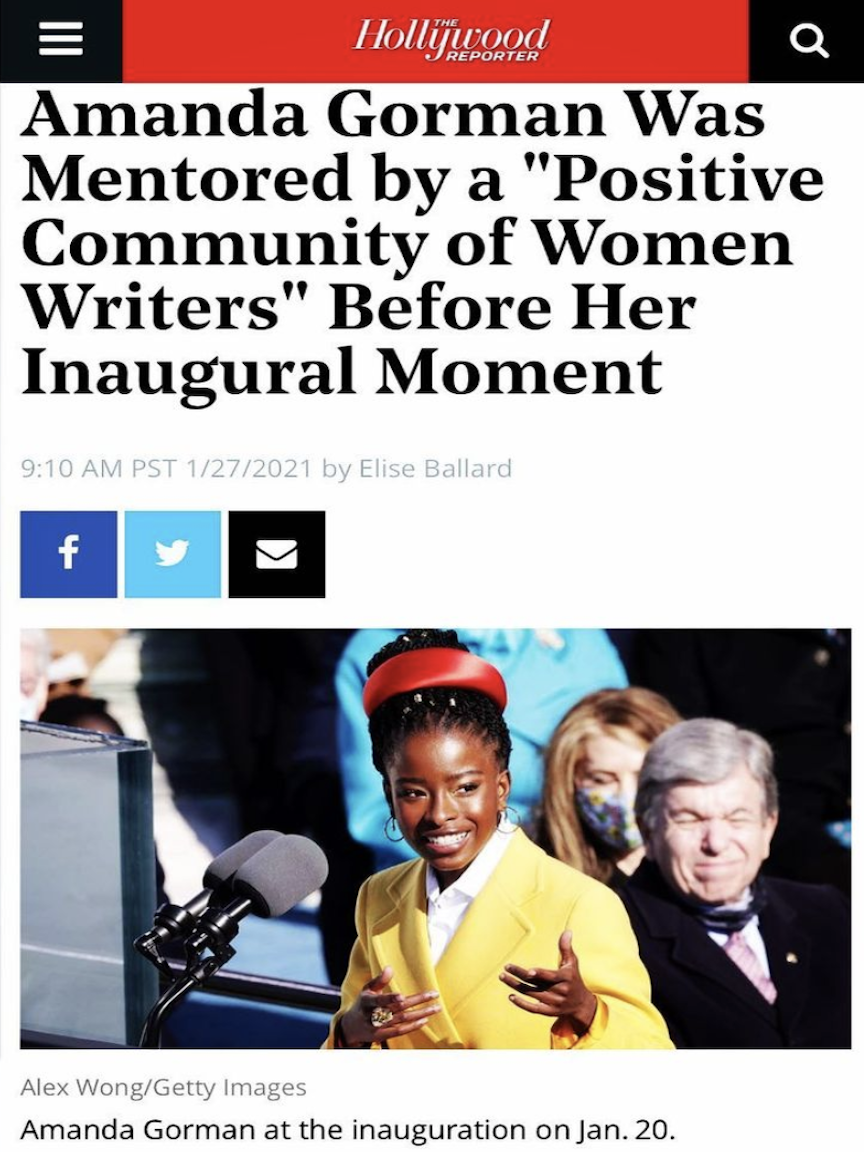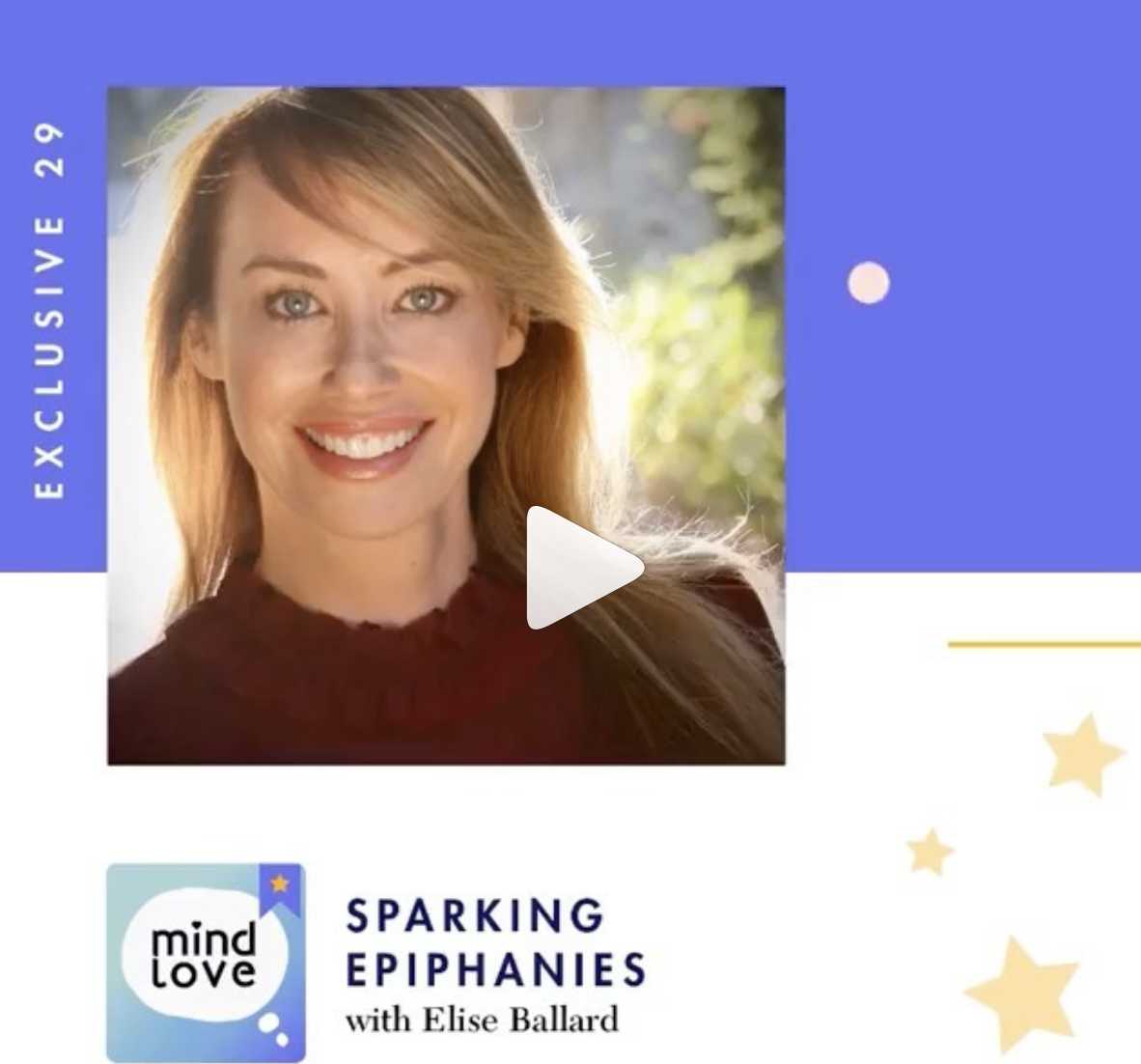
All of the wildly successful people I’ve interviewed about their greatest epiphanies have this in common: They all know EXACTLY what their greatest epiphanies are and they’ve had reverence for them from the beginning. They use their epiphanies as building blocks for their lives—always looking to them as touchstones and guiding lights for the way they live and the choices they make.
When I interviewed Cory Booker, he was serving as the Mayor of Newark. He moved on to serve as a US Senator and is running as a candidate for the 2020 Presidency. Cory had his greatest epiphany at age 12 that was related to him becoming paralyzed with stage fright in his first public speech. He was determined that it never happen to him again and became a great orator–one of the best I’ve witnessed in person. It was also related to the first “public office” he held (7th grade Class President) when he realized that if you’re authentic and owned your mistakes and triumphs, people were forgiving and supportive.
Cory’s epiphany was the spark that began and has guided his career as a politician and public servant. His gifts and talents and what he discovered he loved to do called to him and he developed those aspects of himself, leading him to a fulfilling and success career, which is what I talk about in my TEDx Talk for Kids: Epiphanies + Listening to Your Gifts and Talents. There are no rules about when or at what age your greatest epiphany can happen. The sooner you pay attention to and act on moments like these, and help those around you do the same, the better!
****
Do you know what your greatest epiphany in life is?
Are you utilizing and looking to it as a guide for your life?
If not, you’re missing out on an important tool that we all have access to.
****
If you’d like some guidance with how to access or more fully utilize your epiphanies, feel free to reach out about Epiphany Events and Coaching or try the Epiphany Journal–the exercises in it are designed to help you spark and go deeper with your epiphanies.
****
Cory Booker’s epiphany excerpted from the book is below. For more insights, you can read a little about what my interview with Cory was like and find his bio on his EpiphanyChannel page.
* CORY BOOKER’S EPIPHANY AS TOLD TO ELISE BALLARD *
I was twelve years old and running for seventh-grade class president. I was running against three other guys, the really cool guys, and I always thought of myself as very awkward. After we’d been campaigning for a few weeks, we had to each make a speech. Then the next day the kids would vote.
The day before I had to give my speech I stayed up really late working on it and rehearsing it. It was going to be the biggest moment of my life, in front of all my peers, the entire grade. I got up to give my speech, was standing at the podium, and . . . I froze. I could not get a word out. I remember shaking violently. The paper was rustling, my hands were shaking so hard. I just couldn’t say a thing. I remember that my vice president candidate was standing next to me, bumping me, like, “What’s wrong? What’s wrong with you?” I just couldn’t get anything out. I sort of mumbled through the speech, horrified. The more that it went on, the more horrified I was. It was the singularly most humiliating experience of my long twelve years.
I remember that when it was over, I was devastated. It was one of those things where you could see the pained look on the faces of the other kids. Some kids laughed. I could see that some kids felt awkward too. The teachers seemed to be feeling my awkwardness too. Everybody did. I went home. It was the worst thing that could’ve happened. I was so embarrassed. It was just horrible.
But two things happened out of that which were great life lessons. First, after that I was just so angry and so upset that I made this oath that I was one day going to be a really good public speaker. That day I swore that I was going to get over this fear. It was kind of weird for a twelve-year-old, but I remember saying this, and interestingly, I changed my behavior after that. Any chance that I had to speak in front of people, whether it was the basket- ball team or whatever, I would stand up and try to confront this fear. I practiced public speaking and practiced public speaking and practiced public speaking. Now I’ve given speeches all around the country, to all kinds of groups and in all kinds of situations.
The second thing that helped fuel my confidence to take on this fear of public speaking was that I actually won the election! Winning the election reaffirmed in me that it isn’t the flash, it isn’t the rhetoric. It’s who you are. I think that my classmates knew me—a lot of us had been in school together since kindergarten—and they voted for the person that obviously wasn’t the most popular. The other guys really were the popular guys. Even though the only chance that I had to present my ideas and my platform was incredibly ineffective—and basically a complete disaster—people still voted for me. It made me have a lot more faith in people and the electorate and more courage just to be my authentic self. Even on your worst days, one moment doesn’t mark the entire man, so to speak.
This epiphany, that people will ultimately see the truth of who you are even when you mess up, has been tested time and time again, and has served me as long as I’ve been in public office. When I’ve messed up publicly in a major way, or embarrassed myself and done something stupid, the lesson is always reaffirmed: people are forgiving and loving and they make allowances for inadequacies, as long as you’re honest and own up to mistakes—and they know your character to be true. As bad as the day might seem (and I’ve definitely had days where I felt like curling into a ball, when getting up the next morning takes Herculean energy), this truth about people gets me through.
I think that part of serving in public office is risking public embarrassment or public scorn or ridicule; you definitely take a huge risk. But at the same time, only by putting yourself out there can you really be a part of a movement for change or making a difference. One of my favorite quotes is paraphrased from Teddy Roosevelt, who says, “It’s not the critic who counts. It’s not the man who points out how the strong man stumbled or how the doer of deeds could’ve done better. It’s the man who’s actually in the arena whose face is marred by blood, sweat, and dust, the doer of great deeds.” It says at the end of the quote that if, at the very worst, you fail, at least your place is not with those cold and timid folks who never try at all.
Sometimes the dark moment you’re in is, in the end, actually a gift; that’s also what this epiphany is about for me. That really horrible, most embarrassing moment, at twelve, ended up being a great gift. Not only did it lead me to conquer my fear of public speaking and begin to guide me to this career in speaking and politics, but it helped me see that I love to connect with people in this way. Now when I speak, I feel like I’m not even there anymore, that I’m channeling something larger than myself. And I don’t only feel it when I’m giving a speech, but when I’m having a great conversation with somebody or when I’m watching someone sing or perform; it’s just something about the ability to connect with something universal in everybody. I went from this ignominious beginning when I was very fearful and terrified to stand in front of my peers and give a speech to now, when I speak, I savor the opportunity to try to share my spirit. I can give speeches to large groups, small groups, about facts or technical stuff, or I could even be teaching kids, but the most important thing, to me, is just communicating your spirit. To communicate and share some of your spirit is a very powerful thing.









